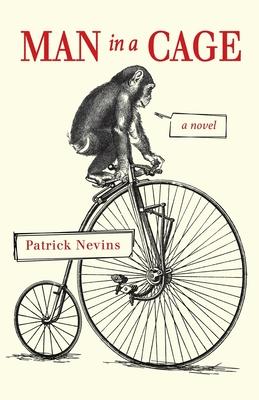Man in a Cage dramatizes the true story of American naturalist Richard Garner's journey to west Africa in 1892. Garner makes his home in a cage deep in an African forest to learn the language of chimpanzees. Populated by bureaucrats, hunters, missionaries, and the indigenous peoples whose lands and lives they have intruded upon, Man in a Cage evokes life on the ground during the Scramble for Africa.
"A fascinating exploration of power, ethics, and what it means to colonize-and be colonized."
-Sarah Layden, author of Trip Through Your Wires and The Story I Tell Myself About Myself
"Evoking rich historical details while telling a story that feels urgently contemporary, Patrick Nevinsdoesn't merely set Man in a Cage in the 1890's--he unflinchingly embodies the era in a way that will thrill anyone with a love for deeply immersive literature. By adopting the structure and vocal timbre of a Gilded Age novel with pitch perfection (at times it felt as though I was reading a lost manuscript from Frank Norris--or some other long-forgotten practitioner of American Naturalism) Nevins conjures a world of colonizers, profiteers, and missionaries--and the harm they've inflicted upon every living thing on this planet--proving the old adage history doesn't repeat itself, but it does indeed rhyme."
-Jeff Chon, author of Hashtag Good Guy With a Gun
"Semi-fictional, filled with real and imagined characters, MAN IN A CAGE is a vivid and arresting portrayal of late 19th century researcher Richard Garner, a fanatic of sorts, determined to prove chimpanzees had complex language, while all those around him believed these "lesser creatures"
merely grunted and howled. By creatively recreating Garner's first African expedition, Nevins deftly explores the rampant contradictions in Western religion, cultural appropriation, pillage, and greed that defined the Scramble for Africa. With meticulous attention to period detail, Nevins' MAN IN A CAGE provides an honest depiction of the racism inherent in the not to distant past, and sheds a cautionary light on the same issues, so unfortunately entrenched in our deeply flawed present. This is a sobering and important read."
-Alice Kaltman, author of Dawg Towne
